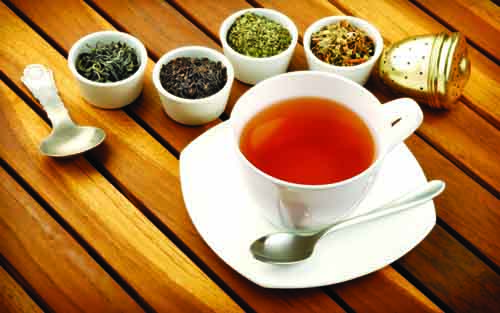Bisma Ashraf Zargar
On the basis of my research on the Effect of Different Processing Parameters on Antioxidant Activity of Tea I as a researcher found that longer steeping time at boiling temperature results in the decrease in antioxidant activity of tea. As in kashmir we generally boil tea for longer time at boiling temperature and due to this prolong heating we are getting an extract having less amount of antioxidants.
As we know that Tea (Camellia sinensis) is the second most popular beverage worldwide and a major source of dietary flavonoid which has been considered as a medicine and a healthy beverage since ancient times, but recently it has received a great deal of attention because of its antioxidant properties. Tea (Camellia sinensis) can be categorized into three main types which are unfermented (green tea), semi-fermented (oolong tea) and fully fermented (black tea) depending on the level of oxidation and processing methods. In green tea (GT), the leaves are rolled and steamed to minimize oxidation and inactivate polyphenol oxidase prior to drying. In black tea production, the leaves are rolled to allow the disruption of cellular compartments to bring phenolic compounds into contact with polyphenol oxidases, and then they are oxidized for 90-120 minutes. However in kashmir, majority of people use fermented (semi and black tea) type, where fermentation stage occurs before drying and steaming and thus, oxidization of catechin gets carried out by active polyphenol oxidase in controlled temperatures and humidity resulting in polymerisation of catechins to theaflavins and thearubigins resulting in the reduced antioxidant activity of tea. Milk is also commonly added to black tea, which may lead to the formation of polyphenol milk protein complexes reducing the total antioxidant activity. Some authors have proposed that the formation of these complexes may decrease the bioavailability and the antioxidant potential of polyphenols which may affect the total antioxidant capacity of tea. Thus the milk proteins interact with tea polyphenols and reduce total antioxidant activity.
Tea is a rich source of functional components. The extraction efficiency of these active compounds strongly depends on the infusion conditions. The research I carried out showed that higher water temperature and short steeping time are the best combinations for the extraction of bioactive compounds from tea samples. The maximum extraction efficiency was achieved at 100°C for 15 minutes. The study also showed that the first infusion of tea showed higher levels of total phenolic content, total flavonoid content, tannin content and antioxidant activity, which gradually decreased in later infusions. Among the three kinds of teas, unfermented tea stands out best with relatively higher content of total phenolic, total flavonoid, tannin content and antioxidant activity as compared to semifermented and fermented tea. Thus the antioxidant activity of the three teas decreased in the order unfermented tea semifermented tea fermented tea. Further the addition of milk to tea infusion decreased the total antioxidant capacity of all the types of tea.
So it can be concluded that tea is a valuable source of antioxidants and tea without milk have good antioxidant potential than tea with milk. And as in kashmir drinking tea is in our culture so I recommend them to steep tea for only 15 minutes at boiling temperature that will give better antioxidant activity to tea otherwise due to prolong heating there is destruction of antioxidants that are important for our health as they prevent the occurrence of diseases by quenching free radicals that will otherwise damage the organ or cell or where ever they get substrate to attack. Now a days due to the changing trend of our habits of eating we are more prone to various kinds of diseases so it will be first step towards protecting our health as antioxidants play very important role in preventing different kinds of diseases. So it will be best to steep tea for a short time period upto 15 minutes to get better quantity of antioxidants that will prove better for our health.
(The author is M.Sc Food Technology)


